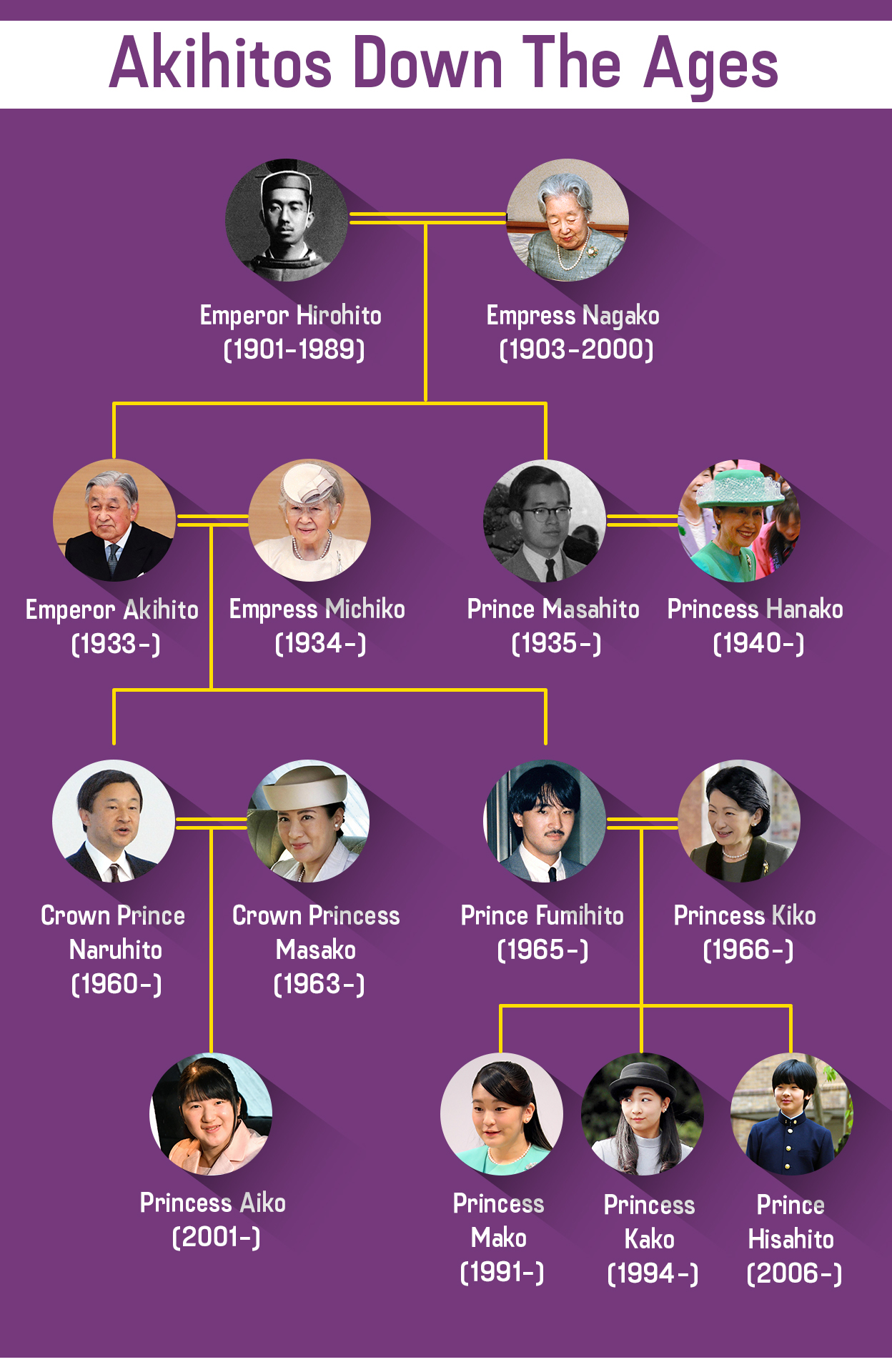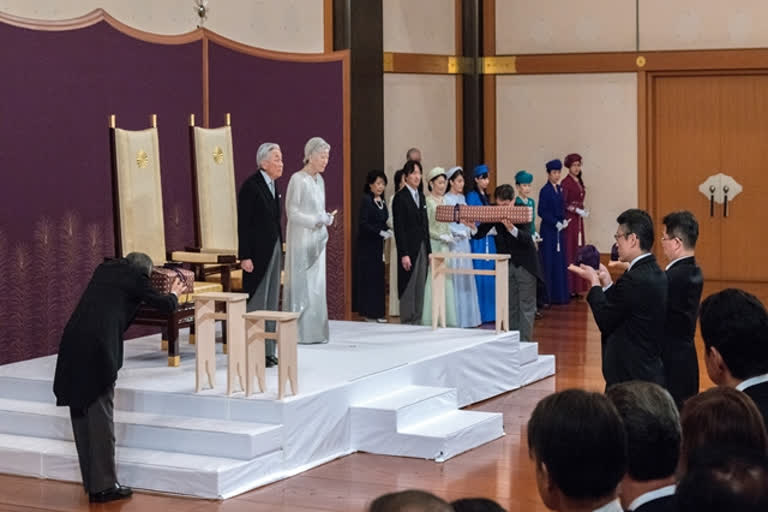Tokyo: Fondly referred to as the "people's emperor," Japan's Emperor Akihito participated in his abdication ceremony on Tuesday, making way for his 59-year-old son, Crown Prince Naruhito, to take over the Chrysanthemum throne as Japan's 126th Emperor from Wednesday.
Japan will usher in the Reiwa era when the clock strikes 12 at midnight today, marking the start of the new Emperor's reign in the constitutional monarchy.
The abdication ceremony, or the "Taiirei-Seiden-no-gi", was held at the State Room in the Imperial Palace here on Tuesday. The long-reigning monarch is the first to abdicate his throne in nearly 200 years.
"Since ascending the throne 30 years ago, I have performed my duties as the Emperor with a deep sense of trust in and respect for the people, and I consider myself most fortunate to have been able to do so. I sincerely thank the people who accepted and supported me in my role as the symbol of the State," the 125th Japanese Emperor said during the abdication ceremony.

Prime Minister Shinzo Abe delivered an address on behalf of the Japanese people during the event, which had around 300 people in attendance, including members of the royal family, the heads of both chambers of the Diet, the Chief Justice of the Supreme Court, and local government leaders, according to NHK.
The monarch had indicated his desire to abdicate in a rare address made to the Japanese populace around three years ago, citing concerns related to his advanced age. The Diet enacted a law to specifically allow him to retire, as there was no provision in Japanese law for him to stand down.
The three-decade-long Heisei period started on January 8, 1989, when Emperor Akihito acceded the throne following his father, Emperor Hirohito's, death.
Leaders like US President Donald Trump and South Korean President Moon Jae-in congratulated the Emperor on his abdication on April 30, media reported.
"We wish Your Majesties continued good health, happiness and well-deserved rest," Singapore Prime Minister Lee Hsien Loong said in a letter.
Emperor Akihito had started abdication rituals early Tuesday morning, when he paid a visit to the Sun Goddess, the souls of ancestors and various deities at the Imperial Palace Sanctuaries. He read out a script written in ancient Japanese to apprise them of his abdication ceremony.
"There were many disasters...but still, it was a gentle period of time. I think that's partially because of the tone the Emperor set," a Japanese woman told NHK while reflecting on the Heisei period in the run-up to Tuesday's abdication ceremony.
Also Read: NZ police arrest man over suspicious explosive device
"I hope that the new era will continue to be without war and that the people can have full lives," another man said.
The 85-year-old royal will hold the title "Joko," meaning "grand emperor" while his English title will be "Emperor Emeritus," after his rule comes to an end at midnight today.
Twelve-year-old Prince Hisahito of Akishino, who is Emperor Akihito's only grandson and Crown Prince Naruhito's nephew, will be the second-in-line after the 126th Emperor's reign starts on Wednesday, as per imperial rules.



